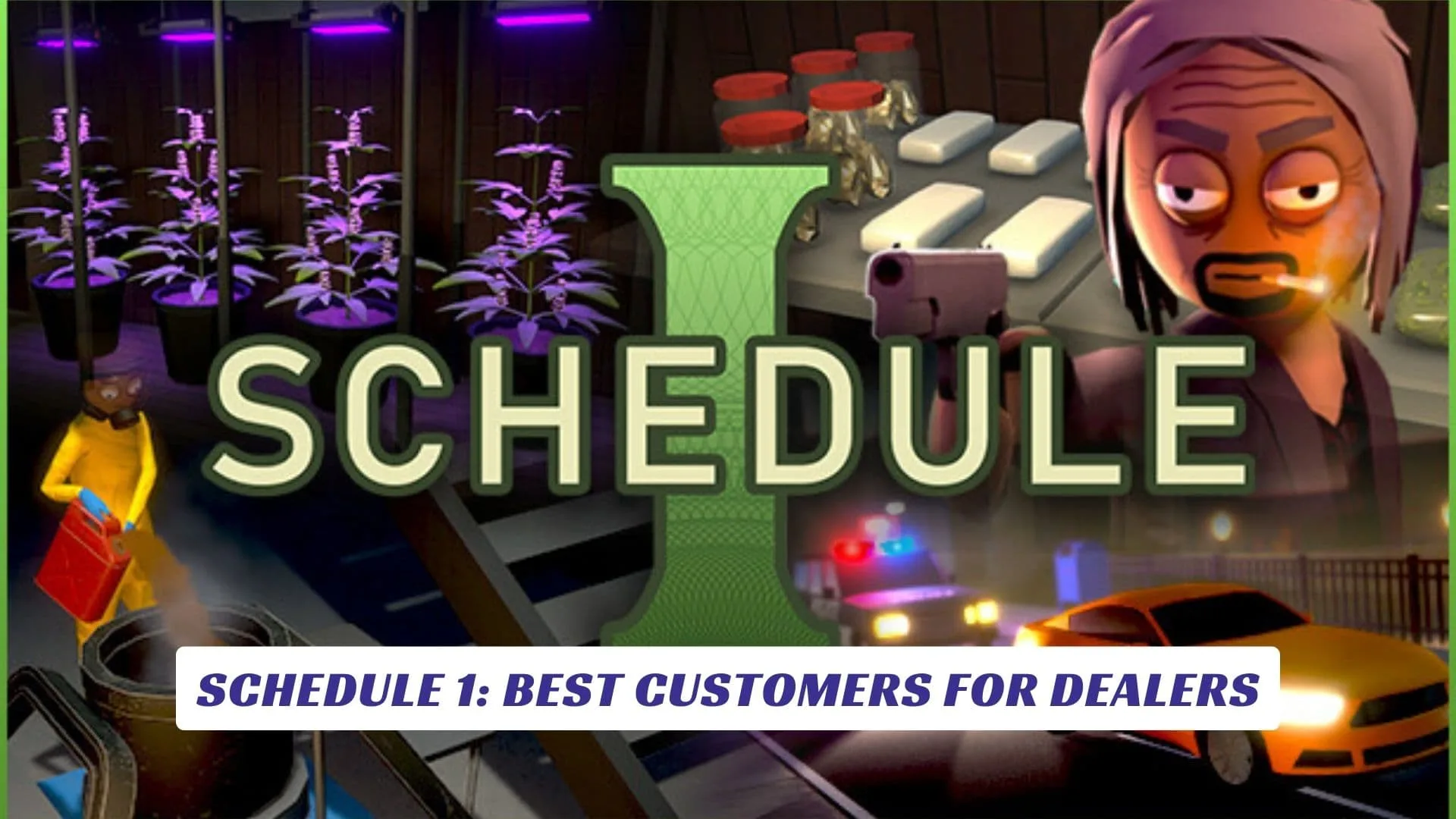Contents
In the gritty, neon-lit world of Schedule 1 players step into the shoes of a rising dealer navigating the complex, high-risk underworld economy. This immersive simulation game challenges you to identify the best customers, optimize your sales routes, and outwit both rivals and law enforcement. In this comprehensive guide, we’ll break down everything you need to know about the “best customers for dealers” mechanic, including customer profiles, behavioral patterns, loyalty systems, and advanced strategies for maximizing your profits and reputation. Whether you’re a newcomer or a seasoned player, mastering customer management is the key to dominating the Schedule 1 leaderboard and building your criminal empire.
What Is Schedule 1 About?
Schedule 1 is a simulation and strategy video game where players manage a network of deals, analyze customer behavior, and make tactical decisions to grow their underground business while avoiding the pitfalls of law enforcement and rival dealers.
Game Overview
- Genre: Simulation / Strategy
- Core Gameplay: Customer management, resource allocation, risk assessment
- Objective: Build your reputation and profits by targeting and retaining the most valuable customers
Understanding the Customer System
The heart of Schedule 1 lies in its dynamic customer system. Players encounter a diverse range of NPCs, each with unique traits, spending habits, and risk profiles. Your ability to identify and cater to the best customers will determine your success.
Customer Profiles
- High Rollers: These clients make large, frequent purchases and are less sensitive to price hikes. Building trust and offering exclusive deals can turn them into loyal patrons.
- Casual Buyers: They buy infrequently and in small quantities. While not as profitable, they can serve as a buffer for your reputation and help diversify your income streams.
- Risky Clients: High profit but high risk-these customers may be under surveillance or connected to rivals. Approach with caution and use them strategically.
Loyalty & Reputation Mechanics
Loyalty is a cornerstone of the game’s progression. Satisfied customers will spread your reputation, unlocking new territories and opportunities. However, neglect or betrayal can lead to negative consequences, including police attention or sabotage from rivals.
- Loyalty Tiers: As you fulfill orders promptly and maintain quality, customers move up loyalty tiers, granting you perks like advance payments, insider tips, and protection.
- Reputation Score: Your standing in the underground market affects which customers seek you out and how much risk you face from law enforcement.
Strategies for Finding the Best Customers
To thrive in Schedule 1 you need a keen eye for opportunity and a knack for risk management.
Tips for Success:
- Analyze Data: Use the in-game analytics to track customer purchase history and spot high-value targets.
- Diversify: Don’t put all your eggs in one basket-maintain a balanced client portfolio to weather market fluctuations.
- Build Relationships: Invest in customer service-timely deliveries, occasional bonuses, and personalized offers can turn one-time buyers into regulars.
- Monitor Risks: Always assess the risk level of each client. Some high-value customers may attract unwanted attention, so balance profit with safety.
Advanced Dealer Tactics
As you progress, the game introduces advanced mechanics like territory wars, undercover stings, and market crashes. Adapting your customer strategy is crucial.
- Territory Expansion: Unlock new neighborhoods by building a strong customer base and leveraging loyal clients as references.
- Dynamic Events: Respond to market shifts-flash sales, police crackdowns, and rival sabotage can change the landscape overnight.
- Upgrades & Perks: Invest in upgrades that enhance your ability to identify and retain the best customers, such as surveillance tools, delivery vehicles, and loyalty programs.
